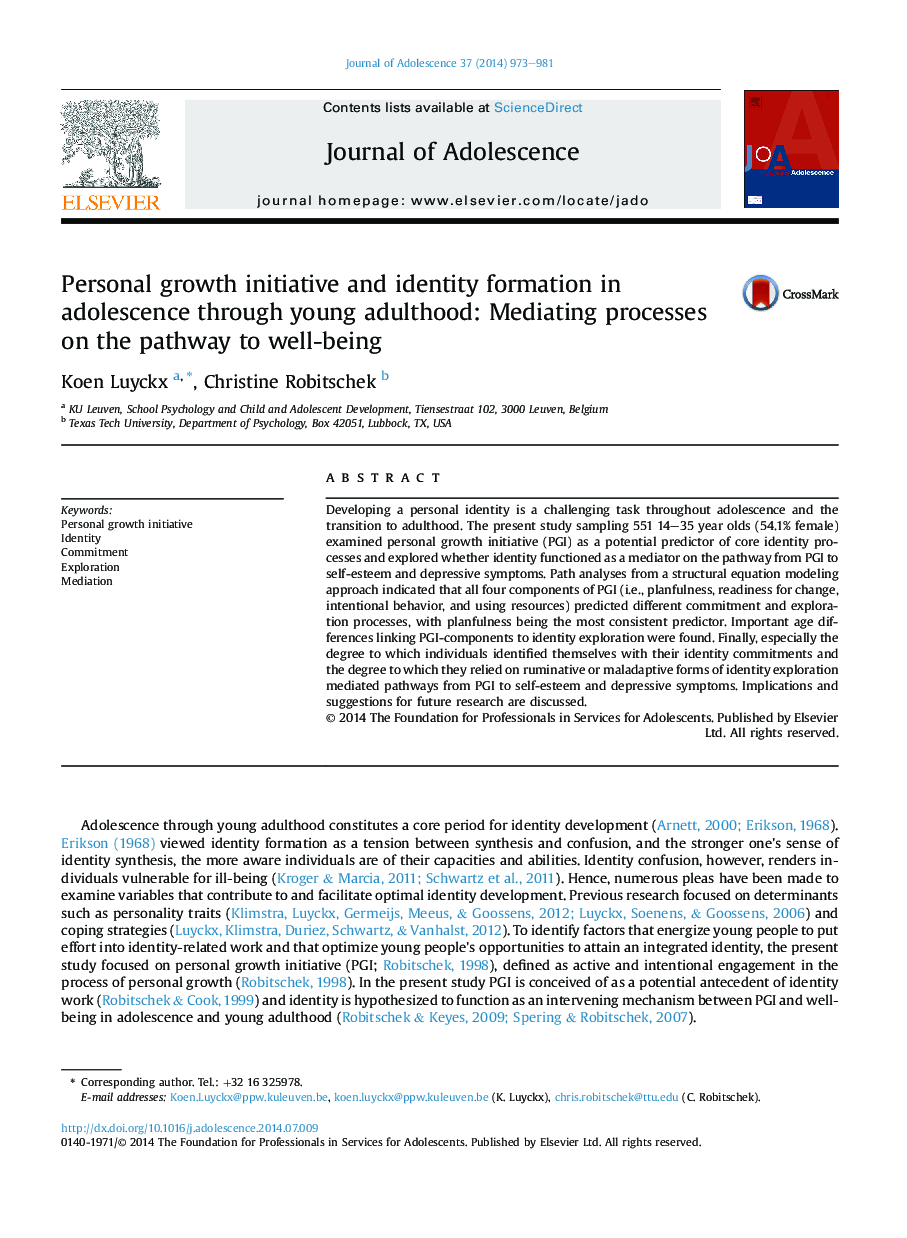| Article ID | Journal | Published Year | Pages | File Type |
|---|---|---|---|---|
| 10436696 | Journal of Adolescence | 2014 | 9 Pages |
Abstract
Developing a personal identity is a challenging task throughout adolescence and the transition to adulthood. The present study sampling 551 14-35 year olds (54.1% female) examined personal growth initiative (PGI) as a potential predictor of core identity processes and explored whether identity functioned as a mediator on the pathway from PGI to self-esteem and depressive symptoms. Path analyses from a structural equation modeling approach indicated that all four components of PGI (i.e., planfulness, readiness for change, intentional behavior, and using resources) predicted different commitment and exploration processes, with planfulness being the most consistent predictor. Important age differences linking PGI-components to identity exploration were found. Finally, especially the degree to which individuals identified themselves with their identity commitments and the degree to which they relied on ruminative or maladaptive forms of identity exploration mediated pathways from PGI to self-esteem and depressive symptoms. Implications and suggestions for future research are discussed.
Related Topics
Health Sciences
Medicine and Dentistry
Public Health and Health Policy
Authors
Koen Luyckx, Christine Robitschek,
